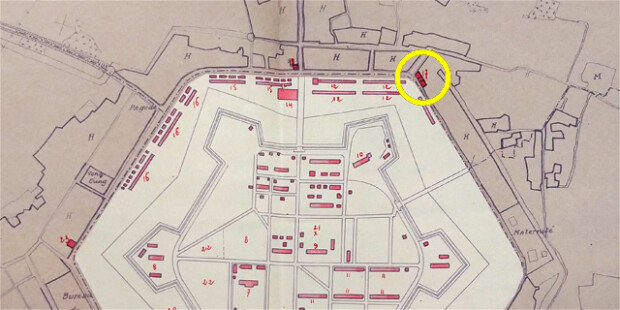French military document: Japan ran brothels in Vietnam in 1940s
French military document: Japan ran brothels in Vietnam in 1940s
Posted August. 13, 2019 07:43,
Updated August. 13, 2019 07:59

An official document of the French military has been confirmed that the Japanese Imperialist army ran brothels during their invasions in Vietnam in the 1940s.
The National Institute of Korean History announced Monday that the Archives Nationales d'Outre Mer (ANOM) confirmed a dossier that belongs to the French military, proving that the Japanese armies set up brothels in Northern cities of Vietnam such as Hai Phong, Bac Ninh, and Hanoi. The presence of the so-called “comfort women stations” by Japanese military has so far been partially confirmed through verbal records.
According to the reports of French army dated October 7 to 10 in 1940, the Japanese army and navy forces stationed in Hai Phong, a port city in the North of Vietnam, were planning to build “maisons de tolérance” near Bien Lake. The report included a detailed account on the establishment of three different comfort women stations for officers, petty officers, and rank and file soldiers, specifying the means of financing as an exchange shop on Paul Bert Street. In addition, a French military’s document came to light, depicting 25 unidentified women arriving at Hai Phong Port in February 1941.
Back then, Vietnam was under French colonial rule, and the Indo-China government, which was established by Vichy France during the Second World War, was cooperating with the Japanese government. In September 1940, Japanese military forces were stationed in Northern Vietnam, before occupying the Southern parts in 1941. The occupation route of Japanese army in Vietnam went on from Hai Phong Port to Bac Ninh and Hanoi.
Two maps were found with the locations of the brothels specified. In a Bac Ninh map, the brothel was set up in a location bordering with the Japanese military base, attesting to the fact that it was under the control and management of Japan. Another map shows that the comfort women station was built along with main facilities of Japanese military in downtown.
Since 2016, the National Institute of Korean History has been collecting and compiling documents on “comfort women” and Japan’s wartime crimes. Professor Rivé-Lasan MARIE-ORANGE at Université Paris Diderot and Lee Jang-gyu, a Korean historian living in France, participated in the research.
Jong-Yeob JO jjj@donga.com







